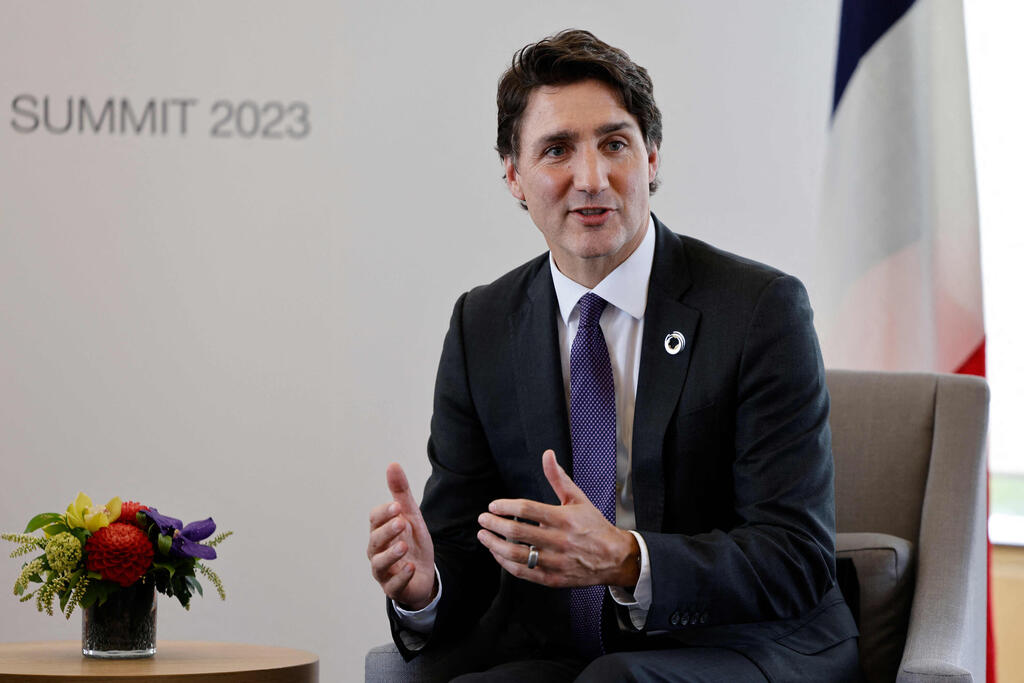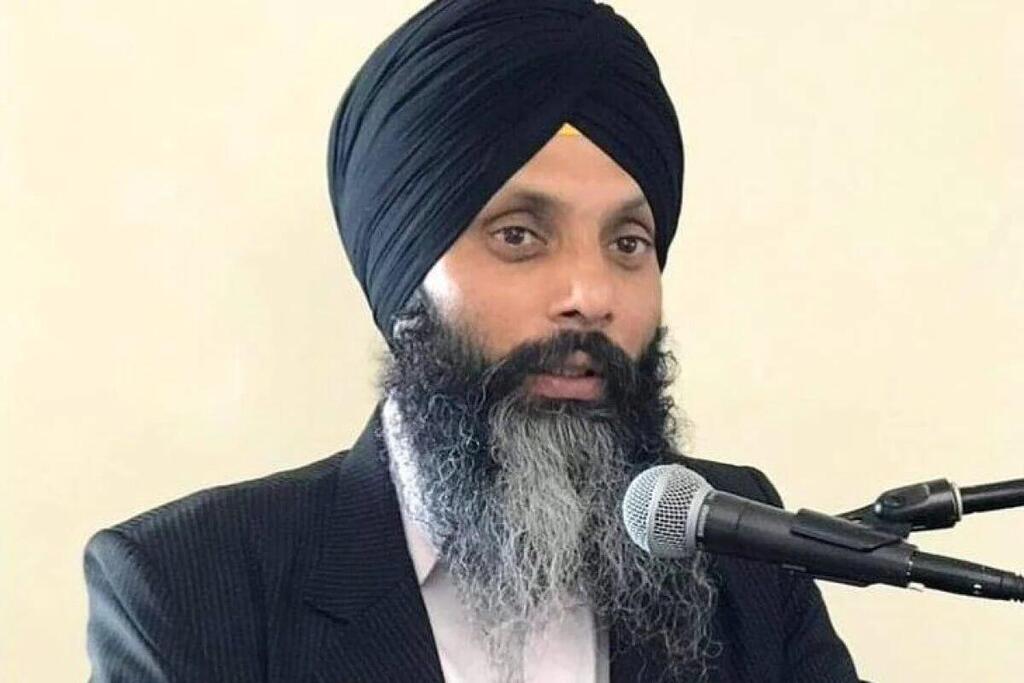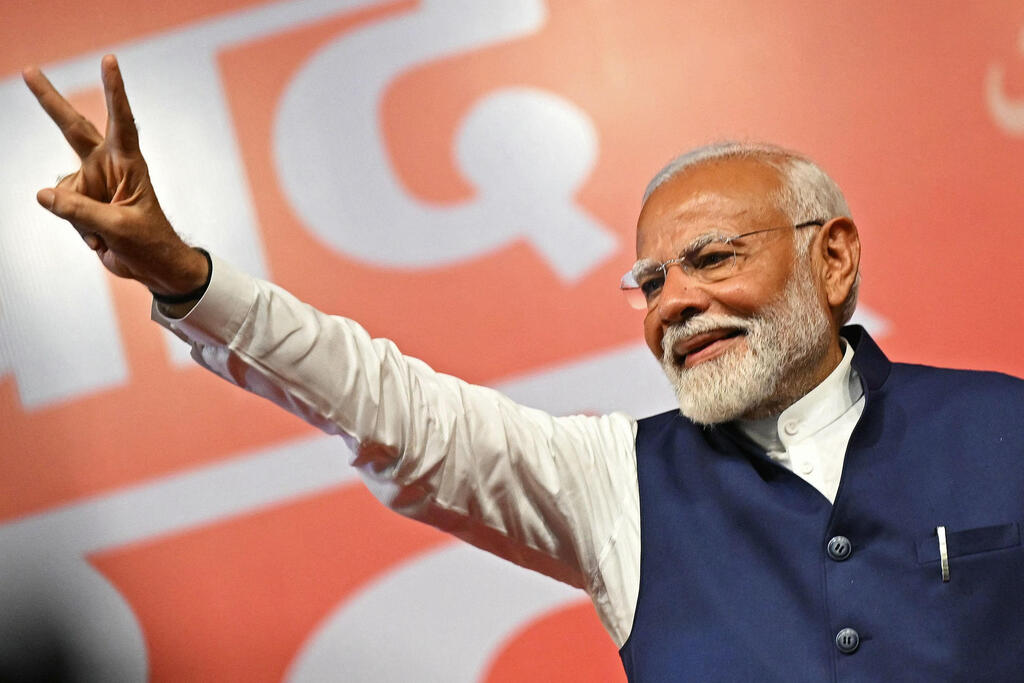India has expelled six Canadian diplomats, including Acting High Commissioner Stewart Ross Wheeler and Deputy High Commissioner Patrick Hebert, marking a significant escalation in diplomatic tensions between the two nations. This move comes in the wake of heightened tensions over allegations made by Canadian Prime Minister Justin Trudeau accusing Indian agents of involvement in the murder of Sikh separatist leader Hardeep Singh Nijjar on Canadian soil.
On October 14, 2024, India announced that the expelled diplomats must leave the country by 11:59 pm on Saturday, October 19, 2024. The Ministry of External Affairs (MEA) of India stated, "The Government of India has decided to expel the following six Canadian Diplomats: Mr. Stewart Ross Wheeler, Acting High Commissioner; Mr. Patrick Hebert, Deputy High Commissioner; Marie Catherine Joly, First Secretary; Ian Ross David Trites, First Secretary; Adam James Chuipka, First Secretary; Paula Orjuela, First Secretary."
Canada had earlier informed India that it expelled six Indian diplomats, including High Commissioner Sanjay Kumar Verma, over allegations of their involvement in a criminal network targeting Canadian Sikhs. Canadian Foreign Minister Mélanie Joly stated that the expulsions were due to accusations of "widespread murder, extortion and coercion" by Indian diplomats across Canada.
In a press release, she said, "Keeping Canadians safe is the fundamental job of the Canadian government. The decision to expel these individuals was made with great consideration and only after the RCMP gathered ample, clear and concrete evidence which identified six individuals as persons of interest in the Nijjar case. We continue to ask that the Indian government support the ongoing investigation in the Nijjar case, as it remains in both our countries’ interest to get to the bottom of this."
The Royal Canadian Mounted Police (RCMP) disclosed ongoing investigations into the involvement of agents of the Government of India in serious criminal activity in Canada. RCMP Commissioner Mike Duheme reported that there had been "over a dozen credible and imminent threats to life" specifically focused on members of the pro-Khalistan movement. He stated, "We reached a point where we felt it was imperative to confront the government of India," but discussions with Indian law enforcement were unsuccessful.
India has strongly denied the allegations regarding Nijjar's killing, calling them "absurd" and "motivated," with Prime Minister Narendra Modi describing the allegations as preposterous. The Indian foreign ministry dismissed the aspersions cast against High Commissioner Sanjay Kumar Verma as "ludicrous and deserving of contempt," and stated the report contained "unwarranted and unsubstantiated imputations." India's Ministry of External Affairs stated, "There is a deliberate strategy of smearing India for political gains," in response to the allegations made by Canada.
The diplomatic fallout occurred after allegations by RCMP Commissioner Mike Duheme regarding the involvement of Indian government agents in serious criminal activities in Canada, including a "threat to public safety." The RCMP has evidence indicating that "agents of the Indian government have used various entities in Canada and abroad to gather information," and they have established linkages between this investigation and agents of the Government of India. RCMP Deputy Commissioner Brigitte Gauvin described the situation as "extremely concerning" and emphasized that Indian diplomats must protect their nationals' interests and not engage in criminal activities, which is a violation of the Vienna Convention on Diplomatic Relations.
Hardeep Singh Nijjar, who held Canadian citizenship, was a leader in the movement for an independent Sikh homeland, known as Khalistan, and had been a vocal supporter of the Khalistan movement, organizing an unofficial referendum for it at the time of his death. He was murdered in June 2023 near Vancouver, raising significant concerns within the Canadian community regarding the safety of individuals from the South Asian diaspora.
The tension escalated when Trudeau claimed that Indian government agents were involved in the murder of Nijjar on Canadian soil, which he described as "credible allegations." Trudeau stated, "The government of India made a fundamental error in thinking that they could engage in supporting criminal activity against Canadians here on Canadian soil, whether it be murders or extortion or other violent acts." He accused India of using its diplomats and organized crime to attack Canadian citizens, linking these actions to allegations of murder, extortion, and coercion.
India has accused Trudeau of pandering to Canada’s large Sikh community for political gain, believing he is targeting India to gain votes from Khalistanis in the upcoming elections. India has in the past described Hardeep Singh Nijjar as a terrorist who led a militant separatist group, having been designated a terrorist in 2020 for alleged involvement in an attack on a Hindu priest—accusations his supporters termed unfounded.
Following Trudeau's allegations in September 2023, relations between India and Canada deteriorated significantly, with India suspending the issuance of new visas for Canadians and asking Ottawa to reduce its diplomatic presence. The diplomatic row has led to a significant deterioration in ties, with India asking Canada to reduce its diplomatic staff by 41 out of 62 members and suspending visa services.
The Indian government expressed that it has "no faith" in the current Canadian government's commitment to ensuring the safety of the six expelled diplomats, leading to the decision to withdraw them. India's Ministry of External Affairs stated, "Therefore, the Government of India has decided to withdraw the High Commissioner [Sanjay Kumar Verma] and other diplomats and officials." India "strongly" rejected a diplomatic communication from Canada suggesting that the Indian High Commissioner and other diplomats were "persons of interest" in an investigation, calling it "preposterous imputations" and part of the political agenda of the Justin Trudeau government.
Canadian Foreign Minister Mélanie Joly confirmed that the diplomats were expelled and not withdrawn, as reported by Canada's foreign ministry. She added, "We continue to ask that the Indian government support the ongoing investigation in the Nijjar case, as it remains in both our countries’ interest to get to the bottom of this."
The RCMP links Indian government agents to homicides, acts of violence, and organized crime targeting the South Asian community in Canada, as well as interference in democratic processes. The RCMP found evidence of interference in Canadian democratic processes. The RCMP has evidence indicating that "agents of the Indian government have used various entities in Canada and abroad to gather information," and they have established linkages between this investigation and agents of the Government of India.
India has vehemently denied all accusations regarding Nijjar's death and described the actions taken by Canadian authorities as "unjustified" and "completely unacceptable," reflecting a growing frustration in diplomatic relations. India's Ministry of External Affairs warned that India now reserves the right to take further actions in response to recent efforts by the Canadian government to fabricate allegations against Indian diplomats. The Indian government expressed that it has "no faith" in the current Canadian government's commitment to ensuring the safety of the six expelled diplomats.
The mutual expulsion of high-ranking diplomats constitutes a further escalation of the conflict between Canada and India. The developments came hours after the Canadian government declared the six Indian officials as "persons of interest" for their alleged role in the June 2023 killing of pro-Khalistan figure Hardeep Singh Nijjar in British Columbia. Canada underscored its commitment to keeping citizens safe, asserting, "Canada took this decision as its main interest remains the safety and security of all Canadians, defending our sovereignty and upholding the rule of law."
Stewart Wheeler stated that Canada has provided "credible and irrefutable evidence of ties between agents of the government of India and the murder of a Canadian citizen on Canadian soil." He added, "It is in the interests of both our countries and the peoples of our countries to get to the bottom of this." After leaving the Indian Ministry of External Affairs, Wheeler reiterated Trudeau's accusation regarding the Indian government's involvement in the murder of a Canadian citizen on Canadian soil.
The RCMP disclosed ongoing investigations into the involvement of agents of the government of India in serious criminal activity in Canada. RCMP Commissioner Mike Duheme said the RCMP has charged "a significant number" of people with direct involvement in homicides, extortions, and other criminal acts of violence over the past few years. The RCMP added, "Despite law enforcement action, the harm has continued, posing a serious threat to our public safety."
India has been asking countries like Canada, Australia, and the United Kingdom to take legal action against Sikh activists involved in the Khalistan movement. The Khalistan movement is banned in India but has support among a minority of Sikhs in the diaspora, especially in Canada. Approximately 770,000 Sikhs live in Canada, constituting 2% of the Canadian population, with significant support for the pro-Khalistan movement among the diaspora.
Relations between India and Canada have been severely strained since Trudeau alleged he had credible evidence linking Indian agents to Hardeep Singh Nijjar’s murder, particularly following his claims of "potential" involvement of Indian agents in the killing of the Khalistani terrorist. India has categorically denied allegations regarding Nijjar's death, calling them "absurd and motivated" and "preposterous." The Indian foreign ministry said earlier on Monday, "This latest step follows interactions that have again witnessed assertions without any facts. This leaves little doubt that on the pretext of an investigation, there is a deliberate strategy of smearing India for political gains."
This article was written in collaboration with Generative AI news company Alchemiq
Sources: Washington Post, chronicleonline.com, infobae, Le Monde.fr, AP NEWS, BBC, Japan Today, The Guardian, CNBC, LaRepublica.pe, Aljazeera, The Hindu, Home, Reuters, CNN, hindi, Spiegel Online, El Universal: El UNIVERSAL
Get the Ynetnews app on your smartphone:




